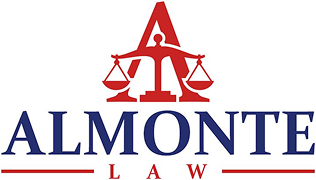State Prosecutor
Bribery and Gratuities
Federal Bribery and Illegal Gratuities Charges
Bribery and illegal gratuities are significant federal offenses targeting corruption within government and public service. Governed by 18 U.S.C. § 201, these laws apply to federal officials, government employees, contractors, and private entities attempting to influence government decisions. Convictions can lead to severe penalties, including long prison terms, hefty fines, and career-ending repercussions.
Federal Bribery (18 U.S.C. § 201(b))
Bribery involves offering, giving, soliciting, or accepting anything of value with corrupt intent to influence an official act. This statute applies to federal officials and those acting on behalf of the U.S. government.
Elements of Bribery:
- Something of Value: Includes money, gifts, campaign contributions, favors, promises of future employment, or other benefits.
- Corrupt Intent: The offer or acceptance must be made knowingly and deliberately to influence an official act.
- Official Act: Any decision or action within a public official’s duties, such as awarding contracts, influencing legislation, or approving regulations.
Examples of Federal Bribery:
- A defense contractor offering cash to a government official for a military contract.
- A company executive bribing a senator to support beneficial legislation.
- A lobbyist giving luxury gifts to expedite regulatory approval.
Penalties for Bribery:
- Up to 15 years in federal prison.
- Fines up to three times the value of the bribe.
- Disqualification from holding public office or working with the government.
Illegal Gratuity (18 U.S.C. § 201(c))
Unlike bribery, an illegal gratuity does not require corrupt intent or an agreement to influence an official act. It involves giving or receiving something of value as a reward for an official action that has already occurred.
Elements of an Illegal Gratuity:
- Something of Value: Similar to bribery, this can include money, gifts, or favors.
- Given or Received After an Official Act: Provided as a thank you for an official decision rather than as a precondition for influence.
- No Corrupt Intent Required: Does not require proof of a quid pro quo arrangement.
Examples of Illegal Gratuities:
- A company giving a government inspector an expensive watch after a safety inspection.
- A contractor treating a federal employee to a vacation as thanks for approving a past contract.
- A lobbyist donating to a public official’s charity after a favorable decision.
Penalties for Illegal Gratuities:
- Up to 2 years in federal prison.
- Fines and potential civil penalties.
Defenses Against Bribery & Gratuities Charges
Federal bribery and gratuities cases often hinge on intent and evidence of a quid pro quo. Common defenses include:
- Lack of Corrupt Intent: Demonstrating no intent to influence an official act.
- No Official Act Occurred: Arguing that no government decision was influenced or rewarded.
- Lawful Campaign Contributions: Legal unless explicitly tied to an official action.
- Entrapment or Government Misconduct: If law enforcement induced the crime, entrapment may be a defense.
Who Is at Risk for These Charges?
- Public officials (federal employees, lawmakers, judges, agency officials).
- Government contractors (defense, infrastructure, healthcare, and tech industries).
- Lobbyists & corporate executives interacting with government agencies.
- Business owners bidding on government projects.
The federal government aggressively prosecutes bribery and gratuities cases, especially in political corruption, corporate-government dealings, and procurement fraud. If facing an investigation, securing legal counsel early is crucial. Consult an experienced federal criminal defense attorney who understands government investigations and white-collar defense strategies.







